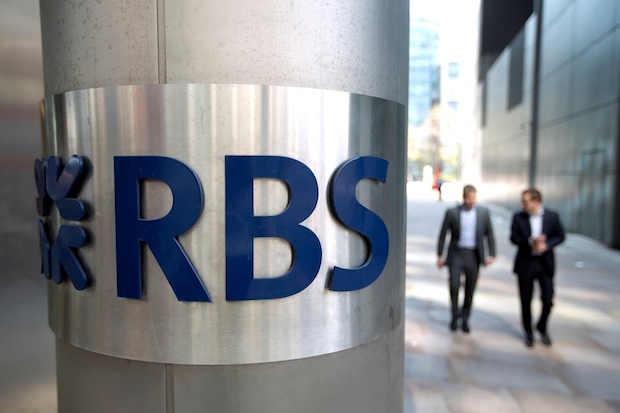‘So RBS say we are in breach of our loan agreement?’ asks the chairman, looking at me over his glasses in that way he has. We have arrived at that moment when we cease to be ignorant of the finely crafted double-speak involved in dealing with RBS. How, in skilled hands, a loan agreement can become a loan removal agreement; how an ‘arrangement fee’ can become an ex-gratia donation to the bank as things are disarranged; and don’t get me going on the ‘commitment fee’. We paid all these costs and thought them worthwhile for a seven-year €40 million facility from a reputable lender, and it was cheaper than equity — much cheaper. Or so we thought at the time, in our ignorance.
I weigh my words carefully, wondering which bit of the travesty I should dish out to my colleague first.
‘No. They say they could call a breach, but haven’t. It’s as if they are pointing the gun, but not pulling the trigger.’ I can’t help but use similes of threat and violence. RBS is suddenly like a gangster cruising the streets for protection money.
‘Why?’ asks the chairman. It’s a fair question. Because the threat is more powerful than the act. Because they cannot squeeze money out of a dead company. I tell him this, and that the purported breach is a flimsy invention.
‘So, RBS won’t allow any further drawing on the facility, and want us to make repayments instead?’ I confirm this too, and the dire consequences for a business with seasonal cash needs. We have a payroll to meet at the end of every month: three hundred households depend upon it.
‘OK, let me understand this. We asked Edward to discuss changing the repayment schedule for the loan, and he said that in itself constituted a breach? Just the fact of asking to discuss it?’
‘Yup.








Comments
Join the debate for just £1 a month
Be part of the conversation with other Spectator readers by getting your first three months for £3.
UNLOCK ACCESS Just £1 a monthAlready a subscriber? Log in